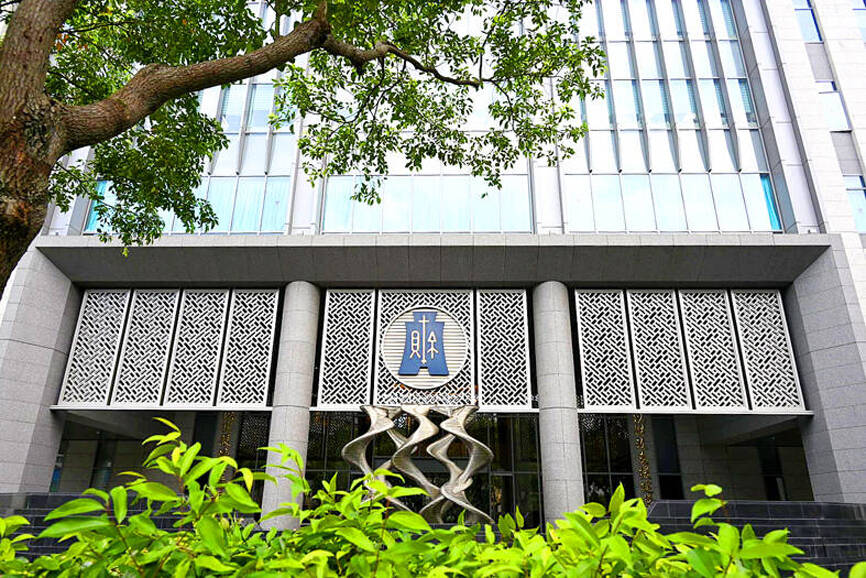The Ministry of Finance is planning to increase the allowance for duty-free alcohol brought into the country by travelers for personal use to 1.5 liters, an official said.
If changed, the new regulations would take effect in the first quarter of next year, they said.
Currently, the allowance for duty-free alcohol for personal use is 1 liter per person, with no limit on the number of bottles and no requirement that it be declared at customs.

Photo: Chang Chia-ming, Taipei Times
Arrivals who exceed the duty-free limit must declare the alcohol, otherwise they risk fines and having the products confiscated at customs.
The ministry plans to increase the duty-free allowance, accounting for regulations in other countries, tax implications and opinions from Taiwan’s alcohol and import industries, the official said.
According to a recent Customs Administration survey, the duty-free allowance for alcohol in Thailand, Indonesia, Hong Kong and Macau is 1 liter per inbound passenger, while in China it is 1.5 liters, and in South Korea and Singapore it is 2 liters.
In Vietnam, the duty-free limit is 1.5 to 3 liters, depending on the alcohol percentage of the product, while Japan allows three bottles of less than 760ml each, which is about 2.28 liters.
In the US and Australia, the duty-free allowance for alcohol is 1 liter and 2.25 liters respectively. The UK allows incoming travelers to bring in a maximum of 42 liters of duty-free beer and 18 liters of still wine, and either 4 liters of spirits and other liquors over 22 percent alcohol or 9 liters of alcoholic drinks with up to 22 percent alcohol (not including beer or still wine).
If Taiwan raises its duty-free limit for alcohol to 1.5 liters, total tariffs, business taxes, and tobacco and alcohol taxes would drop by millions of New Taiwan dollars per year, the ministry said, citing an estimate of 12 million incoming travelers annually.
The official said the ministry had been considering increasing the allowance to 2 liters, but settled on 1.5 liters after careful evaluation of the opinions of associations in domestic alcohol and import industries.

CAUTION: Based on intelligence from the nation’s security agencies, MOFA has cautioned Taiwanese travelers about heightened safety risks in China-friendly countries The Ministry of Foreign Affairs (MOFA) yesterday urged Taiwanese to be aware of their safety when traveling abroad, especially in countries that are friendly to China. China in June last year issued 22 guidelines that allow its courts to try in absentia and sentence to death so-called “diehard” Taiwanese independence activists, even though Chinese courts have no jurisdiction in Taiwan. Late last month, a senior Chinese official gave closed-door instructions to state security units to implement the guidelines in countries friendly to China, a government memo and a senior Taiwan security official said, based on information gathered by Taiwan’s intelligence agency. The

Taiwan Semiconductor Manufacturing Co (TSMC), the world’s largest contract chipmaker, said yesterday that it is looking to hire 8,000 people this year, at a time when the tech giant is expanding production capacity to maintain its lead over competitors. To attract talent, TSMC would launch a large-scale recruitment campaign on campuses across Taiwan, where a newly recruited engineer with a master’s degree could expect to receive an average salary of NT$2.2 million (US$60,912), which is much higher than the 2023 national average of NT$709,000 for those in the same category, according to government statistics. TSMC, which accounted for more than 60 percent

The National Immigration Agency (NIA) said yesterday that it will revoke the dependent-based residence permit of a Chinese social media influencer who reportedly “openly advocated for [China’s] unification through military force” with Taiwan. The Chinese national, identified by her surname Liu (劉), will have her residence permit revoked in accordance with Article 14 of the “Measures for the permission of family- based residence, long-term residence and settlement of people from the Mainland Area in the Taiwan Area,” the NIA said in a news release. The agency explained it received reports that Liu made “unifying Taiwan through military force” statements on her online

Tung Tzu-hsien (童子賢), a Taiwanese businessman and deputy convener of the nation’s National Climate Change Committee, said yesterday that “electrical power is national power” and nuclear energy is “very important to Taiwan.” Tung made the remarks, suggesting that his views do not align with the country’s current official policy of phasing out nuclear energy, at a forum organized by the Taiwan People’s Party titled “Challenges and Prospects of Taiwan’s AI Industry and Energy Policy.” “Taiwan is currently pursuing industries with high added- value and is developing vigorously, and this all requires electricity,” said the chairman